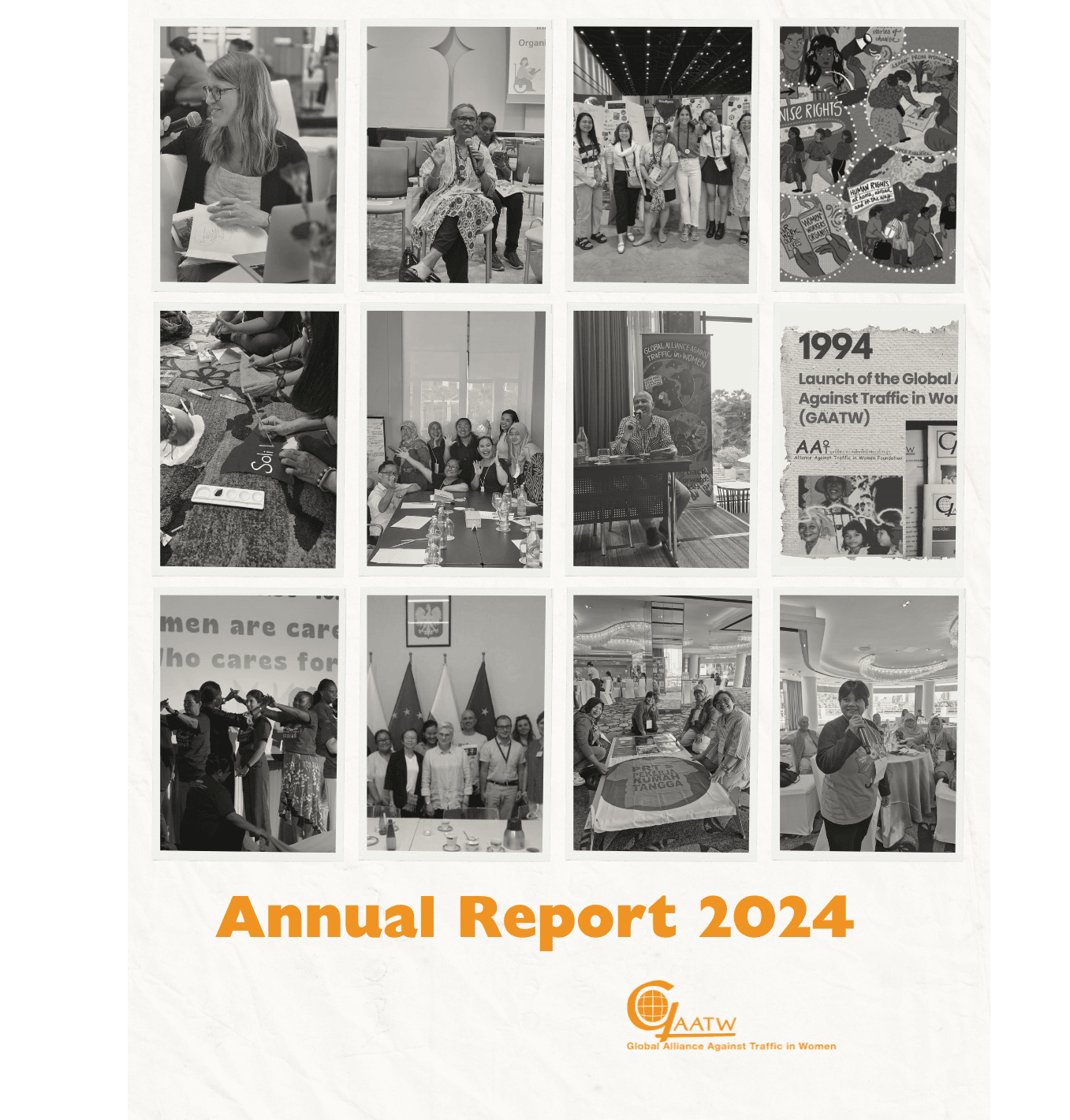
2024 GAATW Annual Report
In 2024, the global landscape for migrant workers, sex workers, and individuals vulnerable to human trafficking remained fraught with challenges. Economic disparities and conflicts continued to drive migration, often leading to exploitation and human rights abuses.
The United Nations Office on Drugs and Crime (UNODC) reported a 25% increase in detected trafficking victims compared to pre-pandemic figures, with a notable 47% surge in forced labour cases. Alarmingly, child trafficking rose by 31%, disproportionately affecting girls.
In Southeast Asia, thousands were coerced into labour within online scam operations, undergoing inhumane conditions. At least 120,000 people were trafficked into scam compounds in Myanmar, and around 100,000 were held in similar conditions in Cambodia. Similar operations also took place in Laos, the Philippines, and Thailand.
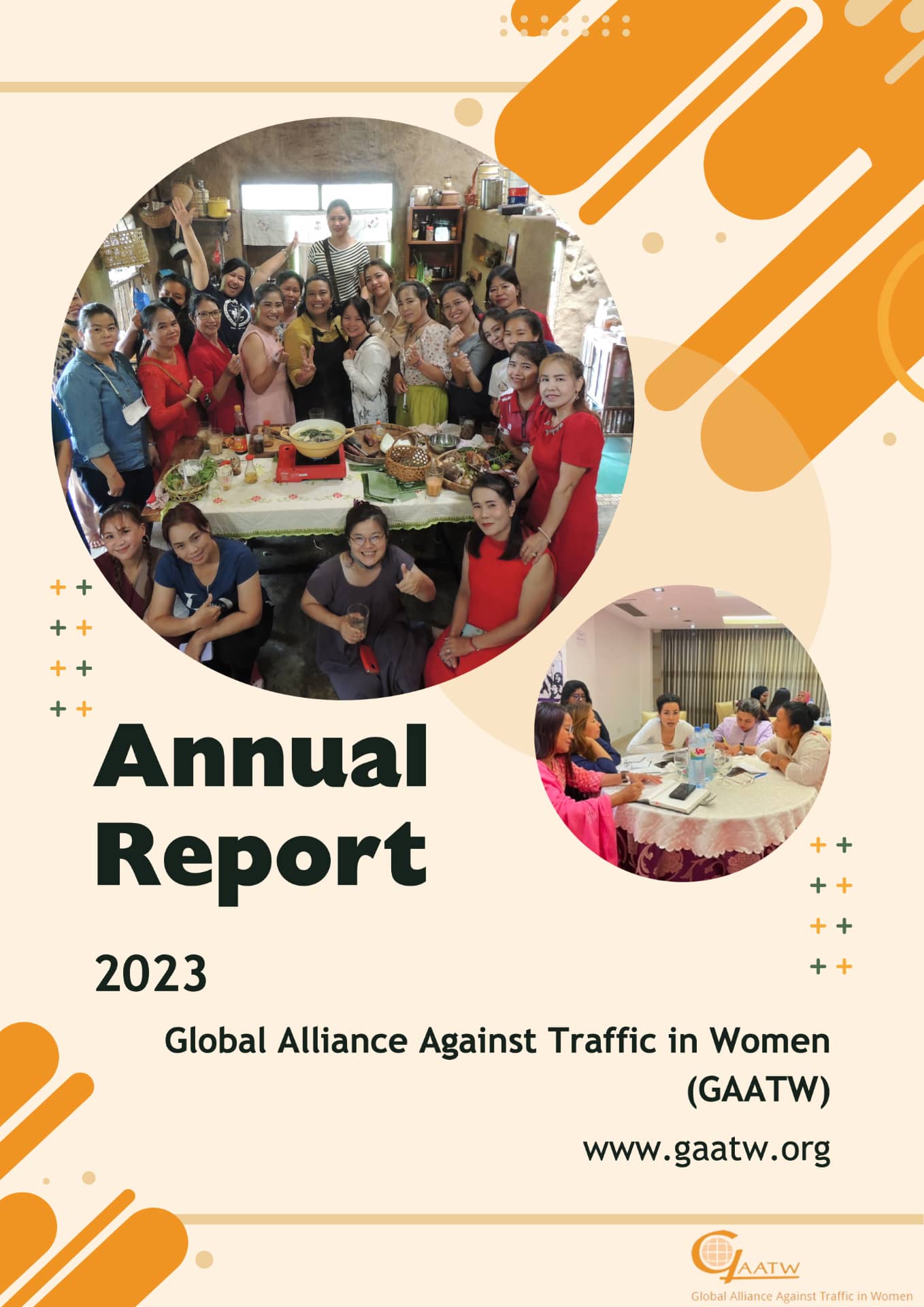
2023 GAATW Annual Report
In 2023, due to higher inflation rates globally, we witnessed a significant increase in the costs of living and transportation worldwide, while minimum wage rates remained static. Low-wage workers were among the most affected by this and the opportunities for migrant workers to earn decent wages became even more restricted.
We also saw a rise in anti-migration rhetoric in many parts of the world, with at least five countries (Chile, France, Italy, Latvia, the UK) enacting new laws to criminalise and worsen the punishments for people who migrate irregularly.
In October 2023, the war in Gaza demonstrated how poor living and working conditions for migrant workers exposes them to a range of harms, beyond labour rights violations. A number of Southeast Asian migrant workers working in conflict-prone areas of Israel and Palestine were killed during the October 7 attacks. When the remaining workers returned home to escape the conflict, Israel turned to more impoverished countries, particularly those in sub- Saharan Africa, to recruit replacement migrant workers.
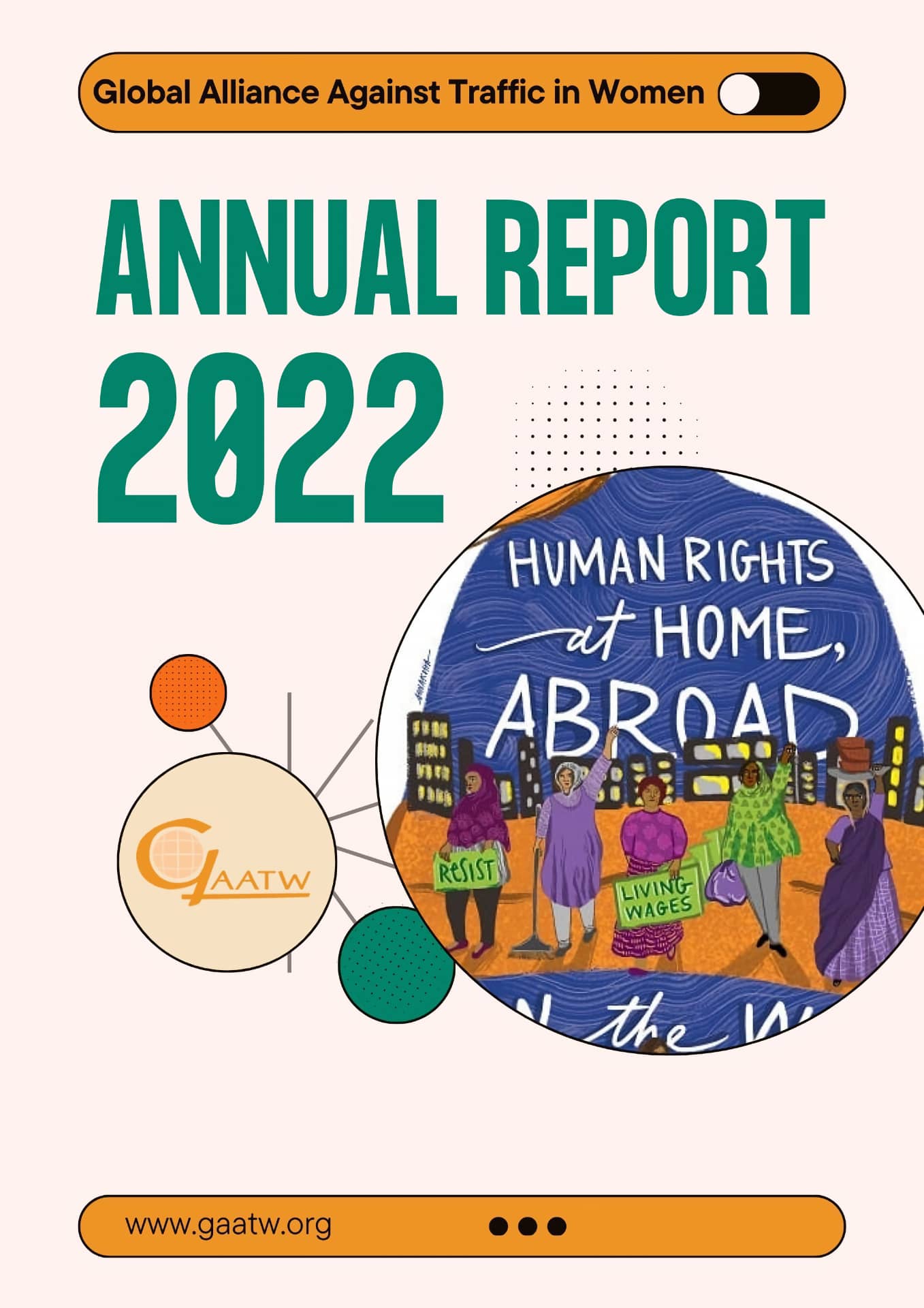
2022 GAATW Annual Report
2022 marked a transitional period in the COVID-19 pandemic and for the GAATW Secretariat. After over two years of unprecedented challenges, we began seeing a gradual relaxation of borders and a cautious return to pre-pandemic travel and working practices. This shift was critical for the GAATW Secretariat staff and our members, many of whom are migrants and were affected by travel restrictions and economic disruptions. The easing of border controls brought a renewed sense of mobility for all of us, and the possibility of meeting in person for the first time in two years. It also meant that new staff members were able to join the GAATW Secretariat in person in Bangkok.
As we entered the third year of our ten-year Strategic Plan, 2022 was a year filled with activity for us. We undertook research in five distinct studies across South Asia, South America, Canada, Europe, and Southeast Asia, documenting the experiences of women migrant workers. These studies delved into various aspects including reintegration, social and economic inclusion, and the transformative impact of grassroots organisations. Through our communications outreach, we continued to promote progressive feminist perspectives within the broader dialogue and activities surrounding migrant and labour rights. Crucial to these efforts was the publication of two issues of the Anti-Trafficking Review and three editions of Our Work, Our Lives. We also commenced a 'Meet our Members' series that publishes glimpses into the diverse worlds of GAATW's member organisations, exploring their unique histories, dynamic programmes, and the varied communities they serve..
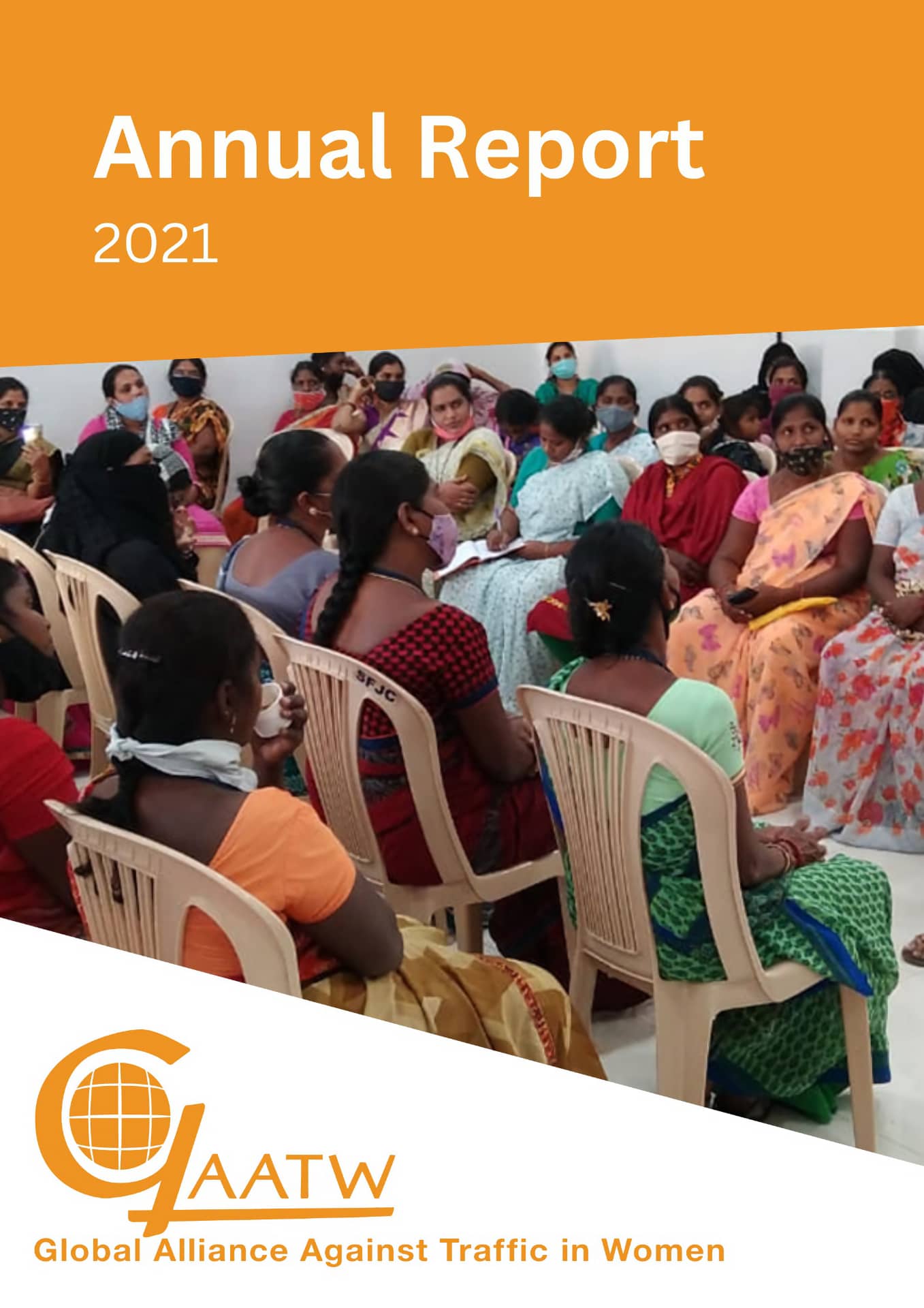
2021 GAATW Annual Report
In 2020, we had started a research project in partnership with 30 NGOs in 18 countries in Southeast and South Asia, Europe, Latin America and North America to document migrant and trafficked women’s experiences with social and economic inclusion in destination countries as well as upon return to the origin country.
In 2021, the partners from South Asia, Latin America, and North America completed the data collection and analysis process and began preparing their research reports and sharing the findings with policymakers, other NGOs, and the public. The partners in Southeast Asia and Europe were at different stages of the data collection process.
The GAATW-IS provided regular support to all the partners with data analysis and contextualisation of the findings and organised international advocacy events.
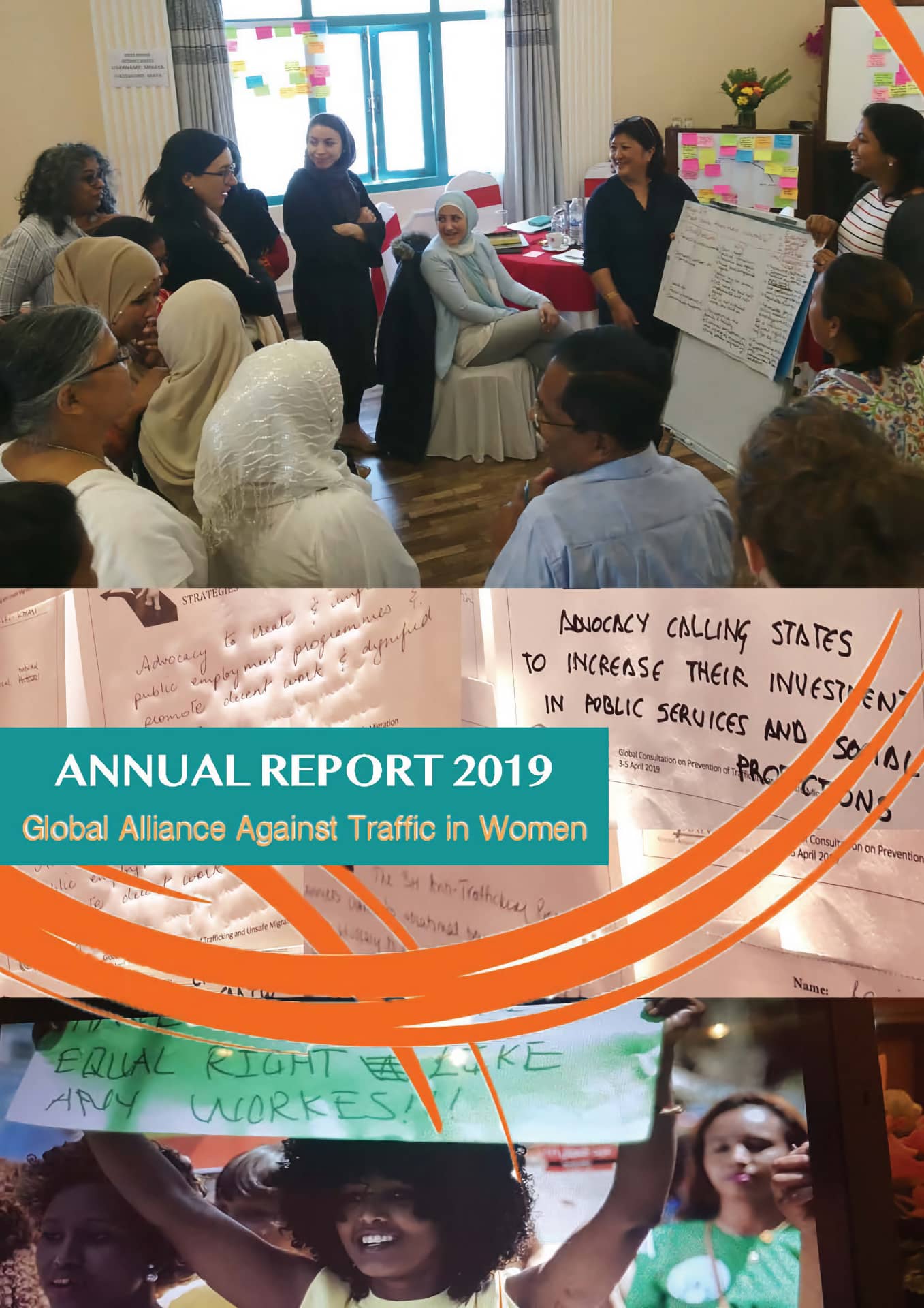
2019 GAATW Annual Report
The year 2019 was an important year for GAATW-IS for two main reasons. It was GAATW’s 25th Anniversary year, a year to celebrate and reflect on the Alliance’s journey. The year was also significant because following up on our consultations with members and partners and our internal discussions at the International Secretariat and with members of our international board, we developed a new Theory of Change and a strategic plan for the next ten years.
GAATW-IS had prepared multi-annual strategic plans before, in consultation with the Collective of Active Members, with the members of our International Board and with Members through consultations and Members Congresses. This was the first time that we followed up consultations with members and internal discussions with an intensive workshop facilitated by an external consultant. We are grateful to Srilatha Batliwala for facilitating the workshop and helping us to develop our ToC and Strategic Plan for 2020-2030. We are in the process of developing programmes and projects in harmony with the ToC.
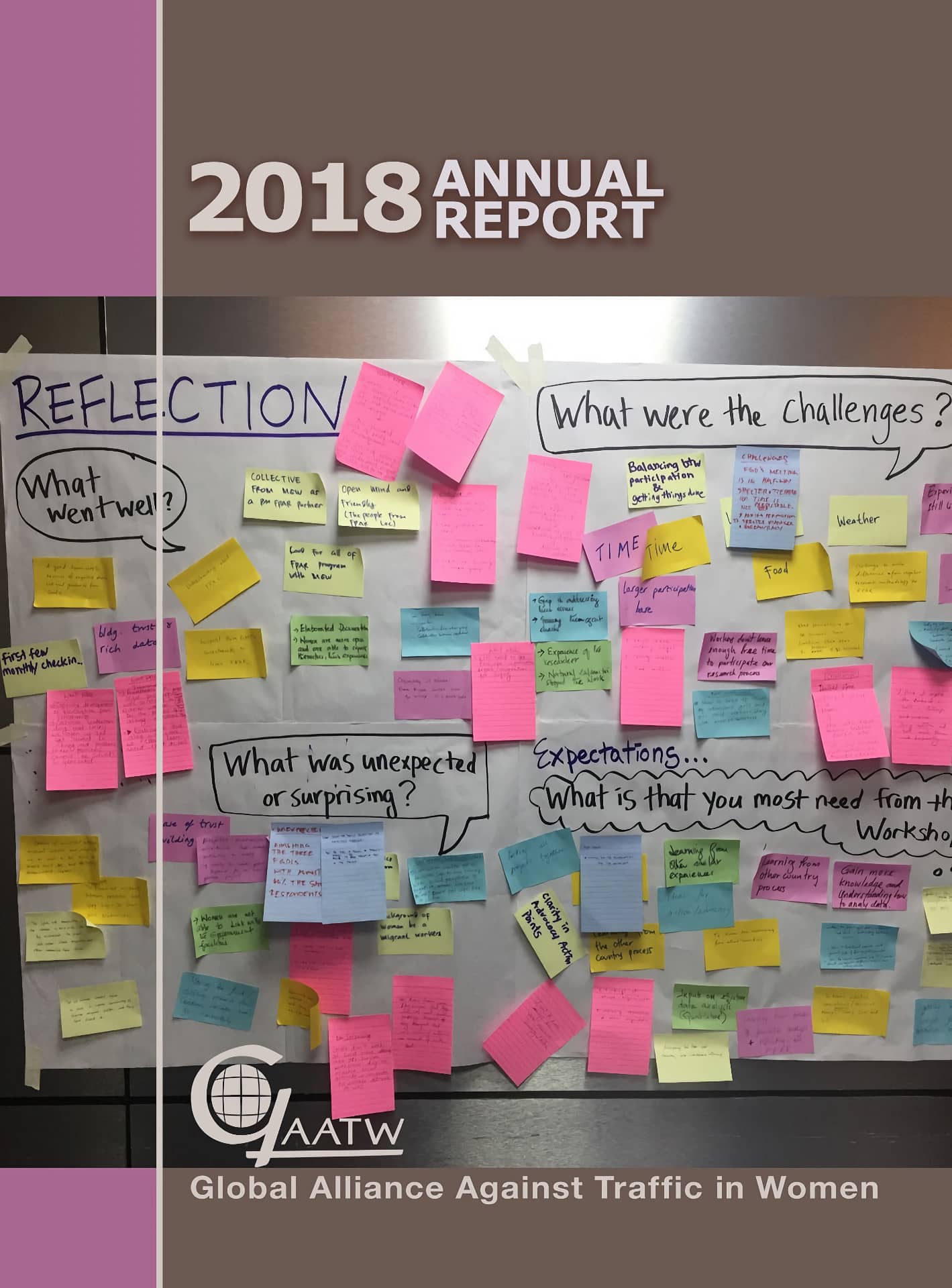
2018 GAATW Annual Report
The year 2018 was an important one for GAATW International Secretariat. In addition to implementing two thematic programmes that comprised five projects and straddled all continents, and carrying out our core functions, we also set out to address some of the structural issues such as membership and decision making processes. Following the organisational assessment carried out in 2017, it was imperative that we take steps to implement is key recommendations.
So it turned out to be a very busy year. We completed a research project with sex worker rights organisations in seven countries which documented how sex workers are organising to tell their own stories, improve their working conditions, and address exploitation, including trafficking. During the year we began three more feminist participatory action research projects in collaboration with partners in Asia, Africa and the Middle East. Our advocacy work continued to engage critically with anti-trafficking initiatives and amplify progressive feminist analyses within the migrant and labour rights discourse and work. The publication of Anti-Trafficking Review was on schedule and the published essays were well appreciated by academics and practitioners.
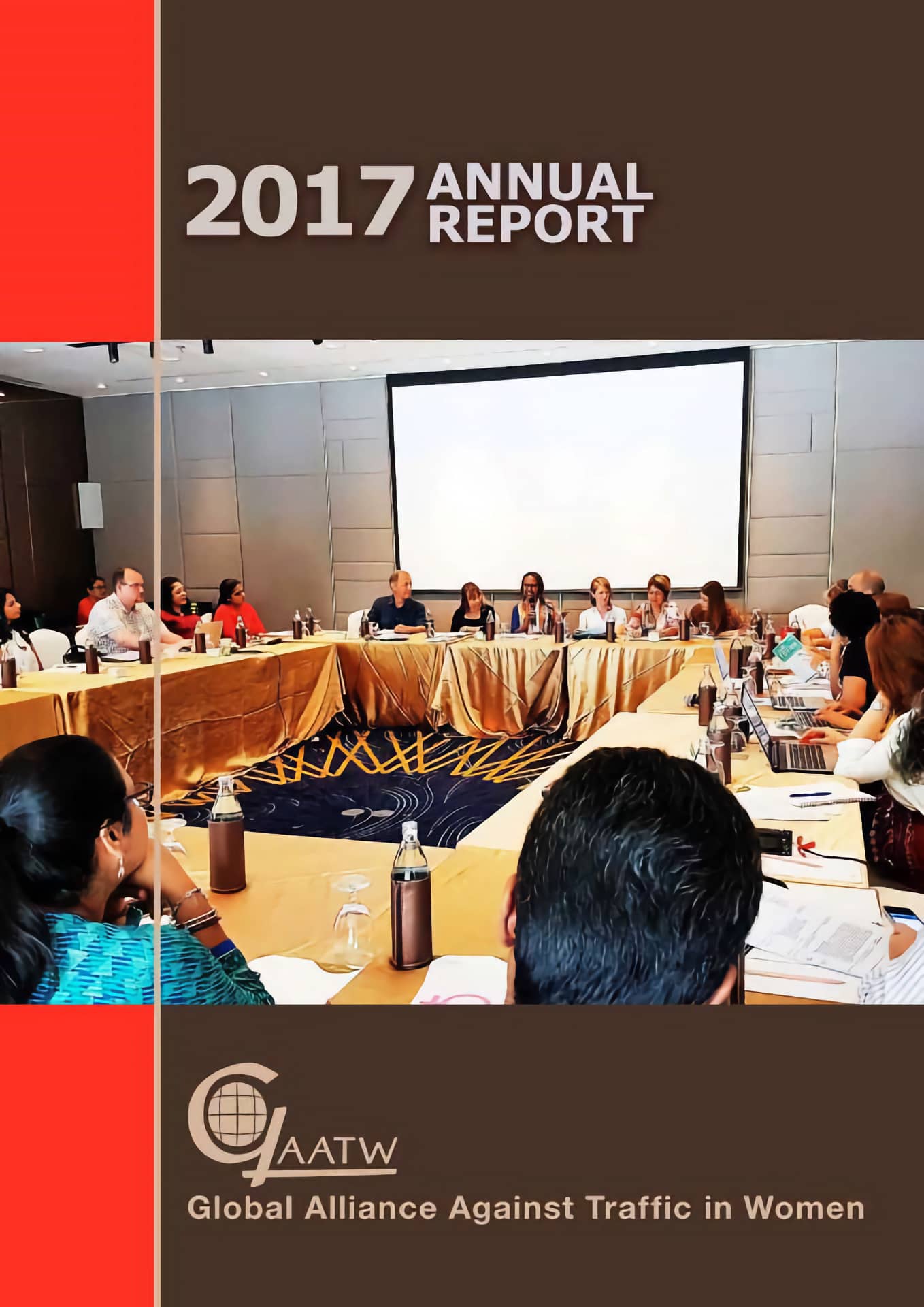
2017 GAATW Annual Report
2017 was a very busy year for the GAATW Secretariat as a small number of staff covered a range of intensive programme areas and core tasks through which we made some progress in deepening our engagement with the Alliance. It was a year of transition, as some projects and project phases came to an end, and efforts were invested into planning for new ones. Though challenged by uncertainty in our funding scenario, the IS is maintaining pre-existing plans with regard to activities, advocacy and research. We said goodbye to three colleagues, and welcomed two new ones who will work on Research, and South and Southeast Asia.
Our thematic areas of Accountability, Access to Justice and Power in Migration and Work remained key priorities. Throughout 2017 projects and research in Latin America, Southeast Asia, South Asia and parts of Africa, and advocacy at the global level, particularly around the Global Compact for Migration enabled the IS to engage deeply with members and partners, and to collaboratively push for policies that promote and protect the human rights of all migrating people, including trafficked persons. A key highlight of our work in 2017 was a global conceptual clarity workshop on Modern Slavery, Trafficking and Forced Labour in conjunction with Beyond Trafficking and Slavery (BTS), which enabled the IS for the first time in a few years to create a learning and networking space where members and partners from all over the world could meet.
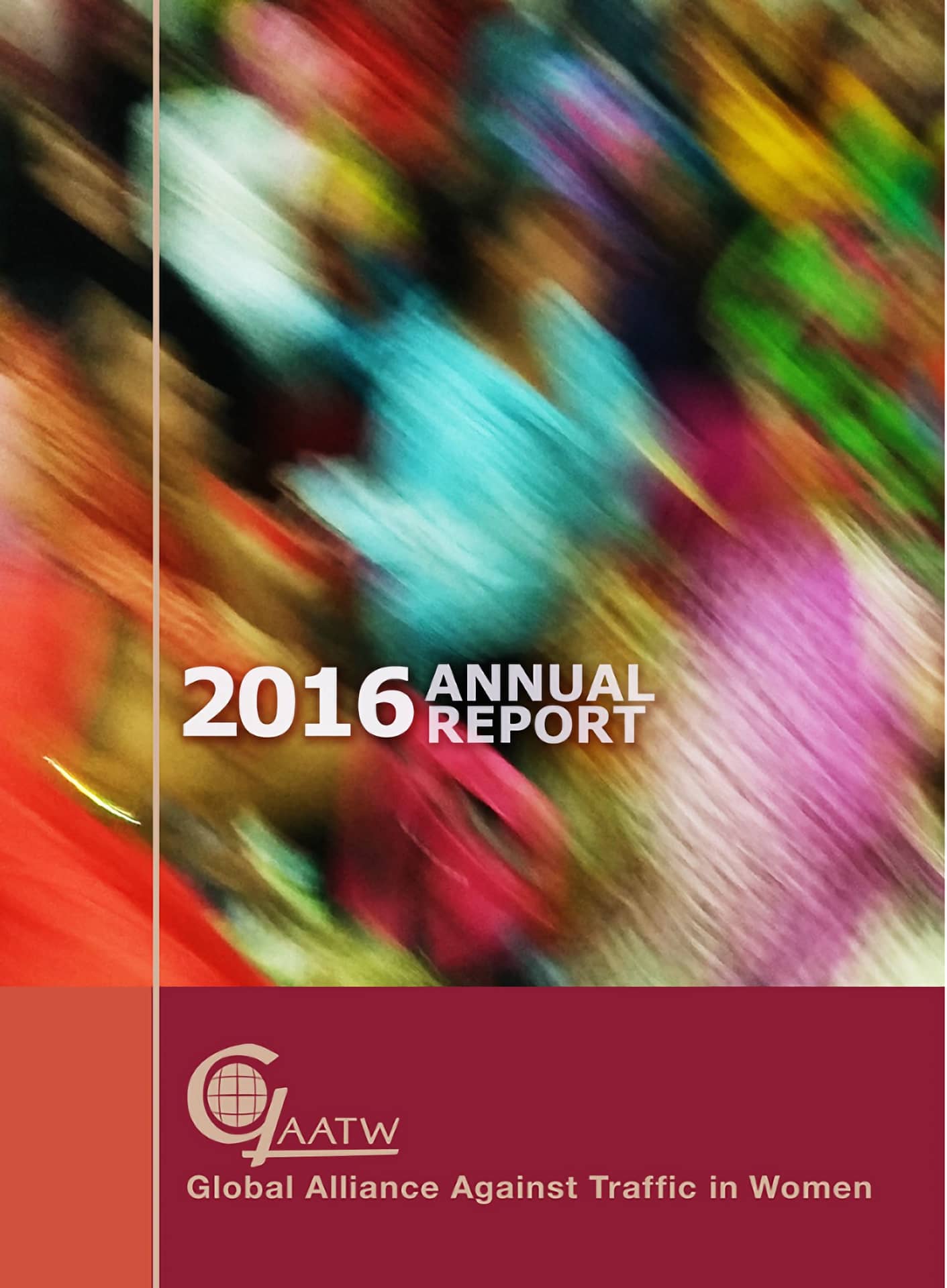
2016 GAATW Annual Report
2016 has been a year committed to re-structure and revive the composition of the GAATW-IS team. Five new colleagues joined the IS to support our work in two regions – South Asia and South East Asia, and our advocacy and communications work.
Of the work we did in 2016, the engagement with members and partners continued through our current projects in Asia and LAC in particular. Our thematic areas in Accountability, Access to Justice and Power in Migration and Work remained as key priorities in designing new projects and proposals.
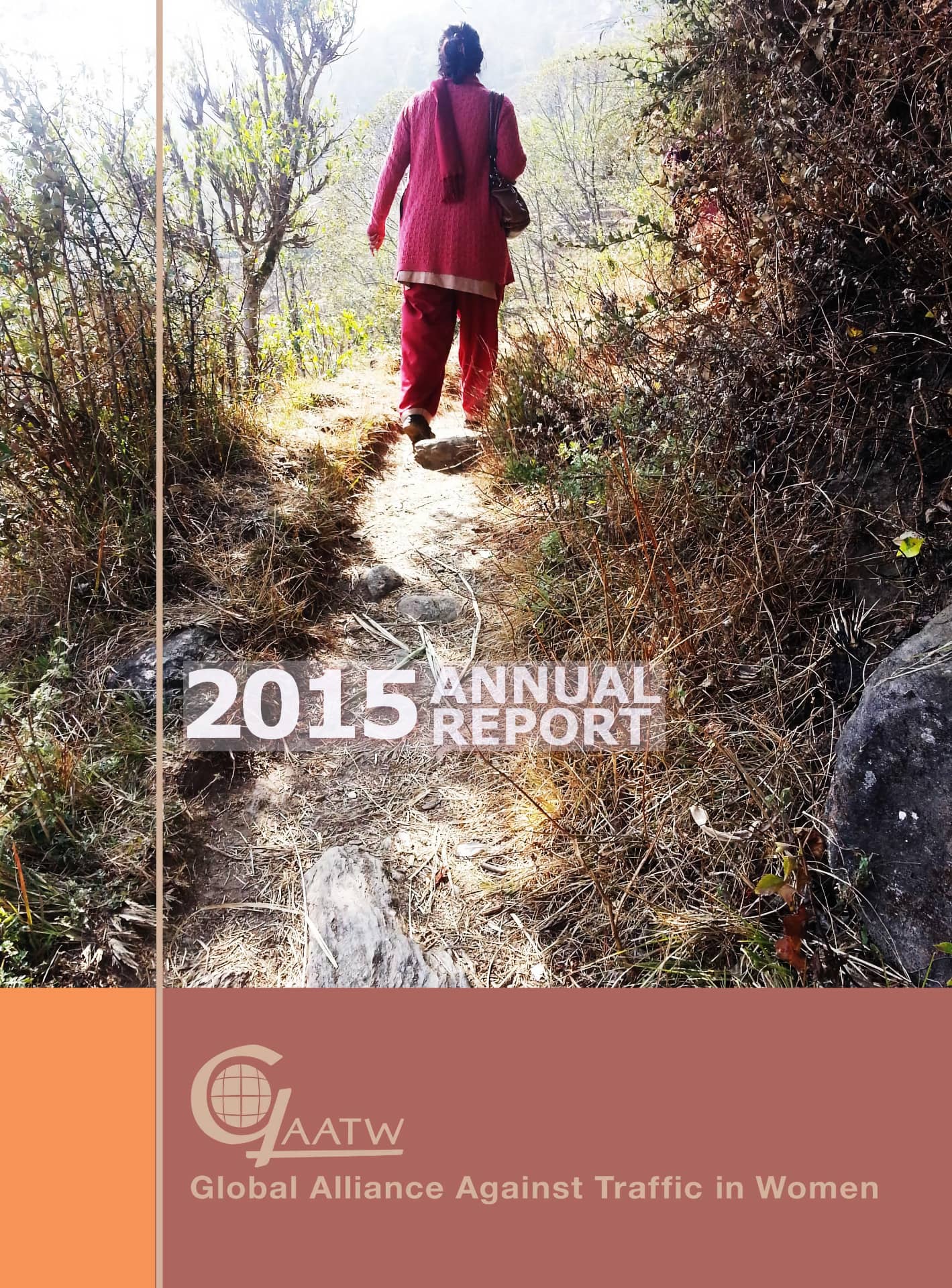
2015 GAATW Annual Report
The year 2015 was a significant year for GAATW-IS. While we continued to work on planned projects, some core support allowed us to hold a strategic planning as a follow up to GAATW’s 20th Anniversary Members’ Congress in 2014. It was an opportunity to discuss the future direction of the Alliance with the International Board and advisors in the light of emerging trends.
It was clear from the Strategic Planning Meeting that the Secretariat needs to strengthen and restructure itself to work optimally. Two Advisory Groups were set up to support the Secretariat’s work. Other input from the meeting include ideas to carry out research on emerging issues.
Of the work we did in 2015, the engagement with colleagues in South Asia who provide safe-migration information to migrating women stands out the most, not so much for the achievement or success but for the complex questions it throws up to guide our work.
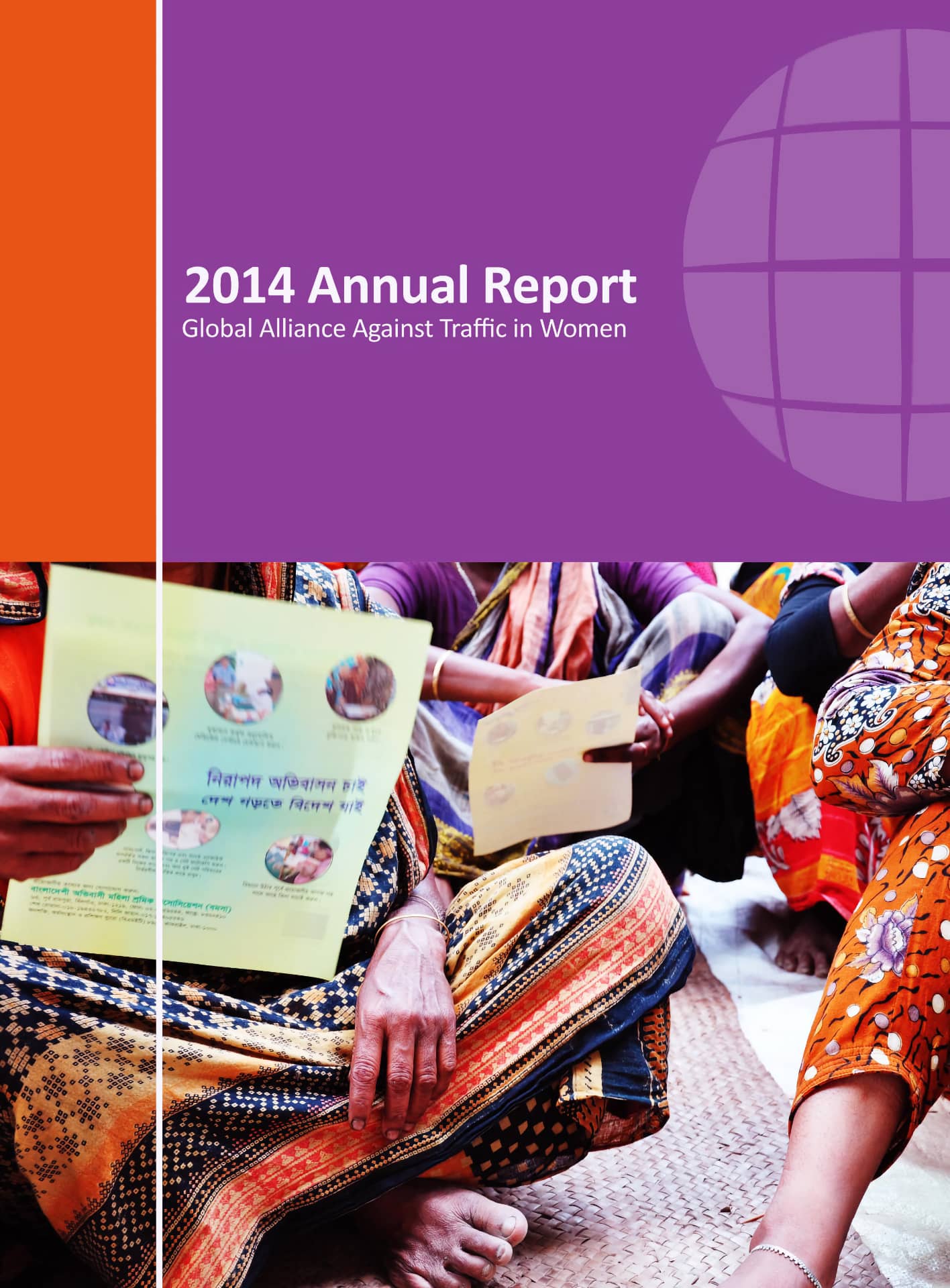
2014 GAATW Annual Report
The year 2014 was a milestone year for Global Alliance Against Traffic in Women (GAATW) as we celebrated our 20th anniversary. The year also marked the beginning of a new three-year programme cycle of GAATW, building on our previous work to engage more directly with the migrant rights and labour rights movements and continue to push for a human-rights-based approach in anti-trafficking policies and practices. Our work in 2014 focused on the thematic areas of Accountability and Power in Migration and Work, as well as strengthening our global Alliance through communications, research and our International Members Congress.
